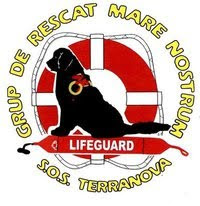
Rosie the Newfoundland's Death Can Save Lives If We Are Willing to Listen and Make Changes | The Highline Times / Des Moines News
(Editor's Note: The Board of Directors of the Newfoundland Club of Seattle wrote the following op-ed after attending the vigil for Rosie, the Newfoundland dog shot by Des Moines police. They said their hope is that this event can bring the community to a solution to prevent future incidents like Rosie's death).
Last week's shooting of Rosie the Newfoundland dog is tragic and nothing can ever bring her back to her family. But we don't have to accept this tragedy as the status quo.
A recent study of law enforcement killings of pet dogs estimate that between 1,000 to 1,300 dogs are shot and killed by law enforcement every year in this country.
That is too many. Rosie's death has given us an opportunity to take a hard look at how we as a community can avoid ever having to bury another family pet unnecessarily.
The lesson we can take from this incident is that proper training and education can go a long way in saving lives. Reviewing Rosie's shooting and news clippings regarding similar incidents around the country, a common pattern of facts recurs: police officers make first contact with the dog and quickly make the determination to use lethal force. By contrast, there are notably few incidents where trained animal control officers make the decision escalate a situation to the use lethal force.
This speaks volumes to the importance of training and a basic understanding of dog behavior.
Implementing a training program for the police force would take a minimal effort, but could pay dividends to the force and community. The framework for such a program has already been implemented by the City of Oakland, Responding to public outcry from a police shooting of a family dog, the Oakland police chief adopted a policy requiring that all of its police officers to receive training in animal behavior and proper methods for containing loose dogs. The program will be paid for by a partnership with a local humane organization. A similar program can and should be put in place in Des Moines and cities and counties throughout Washington. And after seeing the outpouring of support for Rosie and her family, we would venture to guess that there are droves of qualified dog behaviorists and trainers willing to take time to train police officers.
It is sadly ironic that Newfoundland dogs are renown for their gentleness and life-saving instincts. We can't help but feel that Rosie would still be with her family if the police officers involved had received training on animal behavior, proper contact and capture methods.
Let's give Rosie one last opportunity to save lives, if only through her death, by taking this moment to implement training and procedures that will protect families from having to endure the unnecessary loss of a cherished pet.
Board of Directors,
Newfoundland Club of Seattle
www.newfclubseattle.org





































No comments:
Post a Comment